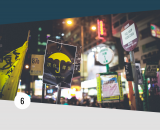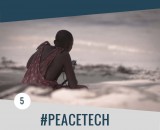Going Mobile: A Review of Peace in Our Pockets
Alejandro Salas, a Mexican anticorruption activist, is the regional director for the Americas at Transparency International (TI). TI leads the fight against corruption globally through a network of civil society organizations that promote citizen engagement, accountability, and public-private collaboration.“Peace in Our Pockets,” a documentary directed by Kenny Dalsheimer and produced by The Groove Productions, runs 55 minutes. The film screens at the Global Peace Film Festival October 2015. Additionally, to celebrate the UN’s International Day of Peace, “Peace in Our Pockets” is free on Vimeo for a limited time. If you would like to host a local screening, contact the filmmakers here. Learn more and connect with “Peace in Our Pockets” via our website, Facebook page and Twitter (@PIOPfilm).
Kenya, historically one of the most politically stable and prosperous countries in Africa, descended into discord following the disputed 2007 presidential election. The reaction to the contested results (which international observers confirmed had been manipulated ranged from non-violent protests to extreme violence—and ended with killings, forced migration, and ethnic targeting. These violent events contrast sharply with the remarkable work of the civil society organization Sisi Ni Amani-Kenya’s (“We are Peace -Kenya” in Swahili) that ensured peaceful elections in 2013. The documentary “Peace in Our Pockets” reminds us that innovation and technology, in the hands of committed individuals, can make a positive difference.
“Peace in Our Pockets” takes the viewer from the tragedy of Kenya’s 2007 post-elections and culminates on the day of the 2013 national elections. Documenting the efforts of Sisi Ni Amani-Kenya to engage with citizens around the country through local networks, the film reminds us of the power of information and those who leverage it for peace. Thanks to an outstanding film score, a vibrant color palette, and camera work which captures the emotions of the events, the documentary becomes a journey of optimism, trust building, and peace.
The documentary “Peace in Our Pockets” reminds us that innovation and technology, in the hands of committed individuals, can make a positive difference.
It is clear from the film that when Sisi Ni Amani began its election-related work, the question was simple and the priority clear: how would violence around the electoral process be avoided, especially in a context where politicians had previously manipulated ethnic divisions to gain political support? The answer was not simple.
Practitioners and activists involved with the promotion of good governance, accountability, and democratic practices frequently face the challenge of translating abstract concepts and values into implementable actions that seem realistic and have the potential to engage a larger audience. Similarly, peacebuilding in conflict and post-conflict societies can start at an individual level and then move to the community level and beyond.
“Peace in Our Pockets” documents the interaction between: the disempowered, the disenfranchised, those seeking change but unsure how to proceed, the empowered and activists in Kenya. Mobilization and action takes place with the help of community-level activists, peacebuilding organisations, and Sisi Ni Amani. Kenyan activists worked through leaders at the community level, building legitimacy and establishing a dialogue before using these partnerships to reach out further -through mobile phones and text messaging (SMS) - to inform and engage with their fellow citizens. In this way, “Peace in our Pockets” illustrates the progressive scale of engagement as individuals move from a state of perceived helplessness, to driving change in their own communities.
In a country where around seventy percent of the population are phone users, mobile technology has played a key role in the success of Sisi Ni Amani’s efforts. The technology offered a multifaceted tool for peace in Kenya, from building awareness, trust, and support for violence-free elections prior to the elections to the rapid, real-time communication and credibility as voting commenced. In the words of the activists, “the use of SMS technology gets you as close as talking to a person.”
(Image by Kenny Dalsheimer) Used with permission, courtesy of The Groove Productions ©
The Kenyan activists featured in the documentary focus on the importance of “living democracy every day”, as opposed to seeing democracy as solely the act of casting a vote. Sisi Ni Amani translated the abstract concept of democracy into an understanding that people have a right to: elect leaders that are best for them, ask for public information, be engaged in dialogue, and gain an understanding of the thoughts and platforms of their candidates. The organization raised awareness and created the conditions for individuals to participate in democratic life, rather than observe the process passively.
From the start, citizen engagement was essential. Participating in debates and meetings, SMS-sharing, and registering for the project’s database soon followed. When people believe in the democratic process and subscribe to it, the process becomes much harder to manipulate. This was integral to Kenya’s successful elections in 2013.
In my field of work –the fight against corruption and promotion of good governance – the Kenyan initiative is inspiring and provides actionable leads on how to adapt and develop a smart strategy to engage citizens. One of the top challenges faced in the fight against corruption is empowering people to transition from a state of anger and powerlessness into taking constructive action.
Figures provided by Transparency International’s Global Corruption Barometer 2013, a survey of more than 110,000 respondents in 107 countries, illustrate that two out of every three people around the globe believe that ordinary individuals can make a difference in the fight against government misconduct. The message is clear: whether the focus is ending corruption or preventing violence, people understand that their voices have the potential to change society. After a nursery burnt down in Mexico, killing 47 chidren, the people of the community were outraged and demanded accountability. Transparency International was able to tap into the emotions surrounding the event and with over 20,000 hours of donated time by parents in the community, they were able to create a persistent infrastructure across 1,480 kindergartens that ensures the safety of their children. The initiatives in “Peace in Our Pockets” and Mexico demonstrate just how powerful those voices can be.
There is much to learn and adapt from Sisi Ni Amani’s example: helping people practice democracy in their day to day lives, building trust and facilitating spaces for dialogue and action, the ability to network and connect people, and the use of technology in specific contexts with clear objectives. These are messages worth listening to. After all, countries with good governance have a 30–45 percent lower risk of civil war according to the World Bank.
There is no magic wand or formula to solve complex problems like violence or corruption. Mobile phones alone and other technologies are not a panacea but rather tools by which to address these issues. These tools, in combination with the will, motivation, and activism of citizens can lead to meaningful changes. “Peace in Our Pockets” is a striking successful example of this synergy.
(Feature Photo Credit: by Kenny Dalsheimer.) Used with permission, courtesy of © The Groove Productions

